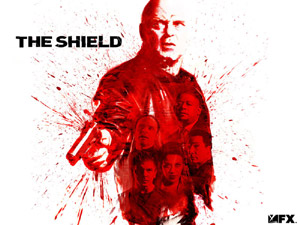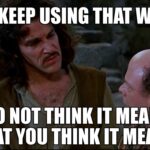This really should be kept secret, but you can learn a lot by watching the making-of DVDs. – Bill Murray1
Scene Bloat
Many a screenplay has been scriptwrecked by scene bloat. Either scenes go on too long, or they don’t belong in the script in the first place.
As screenwriters, one of our main goals is to make our scenes as short as possible — maximum impact/minimum words. A great way to learn how to trim your scenes is to watch the deleted scenes of your favorite movies and TV series, especially if they come with a Director’s commentary track.
 Why were the scenes cut?
Why were the scenes cut?
Recently I watched all 7 seasons of The Shield on DVD. It’s one of the grittiest, most innovative and exciting television series ever created. It’s also one of those rare shows that actually gets better with every season.
Fortunately for us, Shawn Ryan, the show’s creator, provides a commentary track for all of the episodes’ deleted scenes. Here are some of the most common reasons the scenes were cut, in no particular order. The lessons can be applied to both television writing and feature films.
- Same story beats hit
Every scene must add something new to the story; new character revelations, new plot twists, new information. If a scene or moment feels like it’s repeating itself, it has to go. - Impact
Even with the most well-acted/well-directed scenes, longer does not always mean better. Cutting a scene down to its essence will keep the audience engaged and make it more impactful. - Wrong tone
Comic relief has its place, but occasionally a joke or lighthearted moment can lessen the poignancy of something dramatic that’s just come before it. There are many people who believe the quick jump from the profound ending of the movie Being There, to its comic outtakes, cost Peter Sellers the Academy Award for his brilliant performance. - Pacing
Sometimes a story can lose momentum if you break away from the main driving plot to deal with a subplot — especially if the intensity, interest or importance of the subplot isn’t on par. - Setup was unnecessary
Most times you don’t need the setup. You don’t have to show the cops sitting at the station, receiving an alert, then dashing out to their police cars. Just start with the cops arriving at the scene. The audience will fill in the blanks. - Cut for time
TV episodes have very rigid parameters for length. Even for feature films, there will always be pressure to ensure a movie has an optimal running time. When cuts need to be made, the first scenes (or parts of scenes) snipped will be ones that don’t drive the story forward.
The next time you rent a DVD, make sure to check out the deleted scenes. Watch them first without the commentary track and see if you can recognize why they were cut. Once you have a feel for it, it will help your writing immensely.
Watching and learning from The Shield… Best. Homework assignment. Evar!
Need someone to review your screenplay and give you insights that are guaranteed to make it better? Please take a look at my script services.
- From a fascinating interview with Bill Murray for GQ. H/T to Scott M. for sending me the link. ↩




